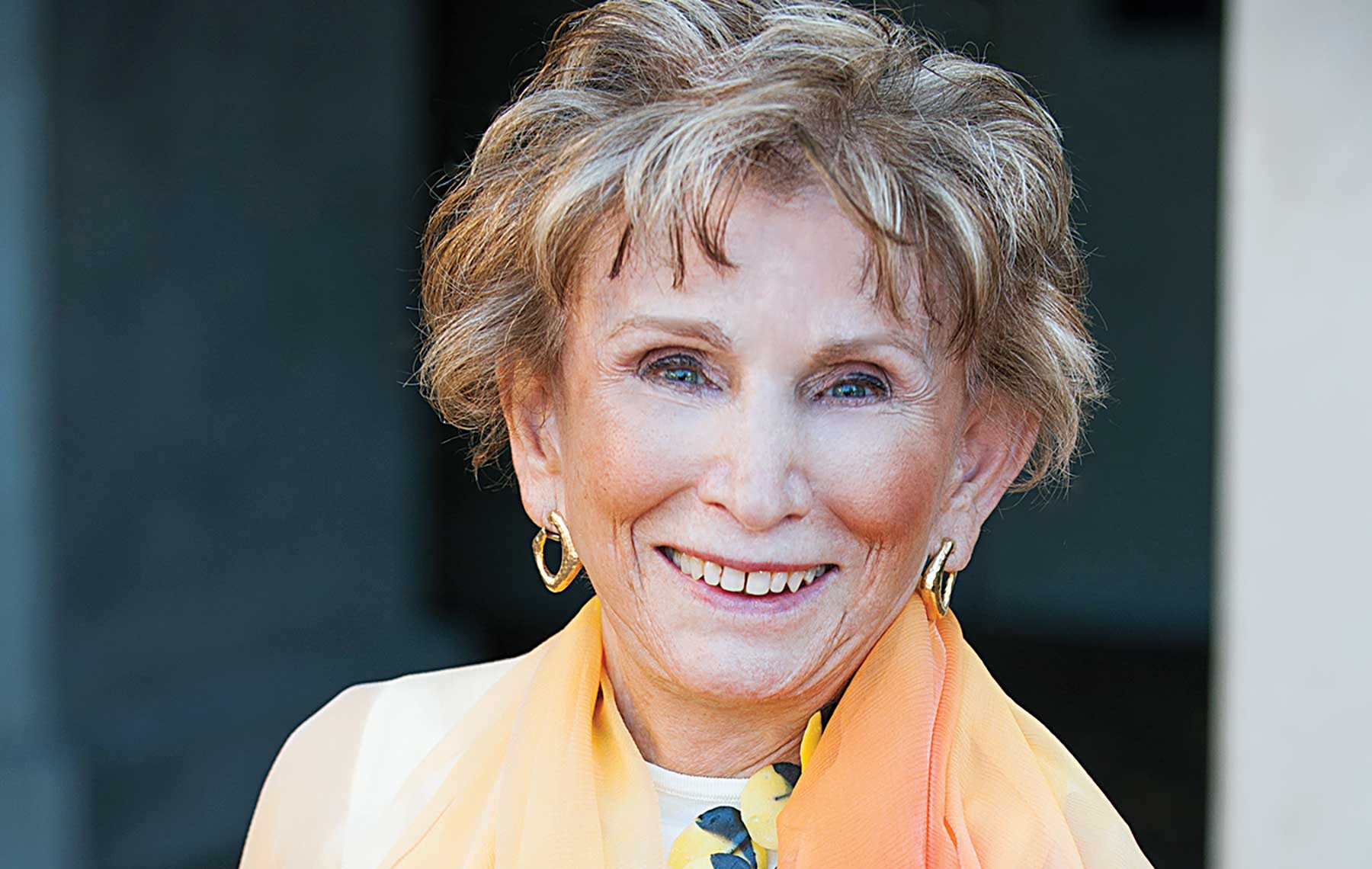 Edith Eger; Photo by Jordan Enger
Edith Eger; Photo by Jordan Enger It’s never too late to become a bestselling author. Just ask 92-year-old clinical psychologist Edith Eger, who hit the New York Times bestseller list in 2017 with her memoir, “The Choice” (Scribner).
A Holocaust survivor with an extraordinary story, it seems fitting that her follow-up is a self-help book titled “The Gift: 12 Lessons to Save Your Life” (Simon & Schuster). Eger wrote “The Gift,” due to be released on Sept. 15, after she received requests from her readers for a more practical guide to healing.
In an interview with the Journal, Eger said, “As the perfect follow-up to ‘The Choice,’ this new book is filled with empathy, advice and humor. ‘The Gift’ captures the vulnerability and common challenges we all face, providing encouragement and advice for breaking out of our personal prisons and finding the key to freedom.”
The title of the book, she said, alludes to the precious gift of life. “You can have a lifestyle and [you can have] a deathstyle. God gave us temptation so you can practice the freedom of choice. The more choices we have, the less we feel like a victim.”
And Eger understands how truly precious life is. Born in Hungary in 1928, Eger and her entire family were sent to Auschwitz in 1944 when she was 16. Her parents were sent to the gas chambers but she and her sister survived. In her memoir, she talks about how she was forced to dance for Josef Mengele for his entertainment. Some of her harrowing experience is summarized briefly on her website, where it states, “Toward the end of the war Edith and other prisoners had been moved to Austria. On May 4, 1945, a young American soldier noticed her hand moving slightly amongst a number of dead bodies. He quickly summoned medical help and brought her back from the brink of death.”
“I don’t get over it or forget it, but I don’t live [in the camps],” Eger said. “That’s what I’m all about — not to concentrate on what you lost, but on what is still here. You have yourself and that’s the only one you’re going to have for a lifetime. Self-love is self-care. It’s not narcissistic.”
“You can have a lifestyle and [you can have] a deathstyle. God gave us temptation so you can practice the freedom of choice. The more choices we have, the less we feel like a victim.” — Edith Eger
She added that in Auschwitz she made a choice: to live in the present and practice what her ballet teacher had told her before the war — to look at life from the inside out. “I think it was really a lifesaver,” she said, “acknowledging that they could put me in a gas chamber any minute and they could beat me and torture me, but they could never really rob me of my spirit. I [had] to find my ecstasy from inside [myself], because nothing came from the outside except the gas chamber and the fire from the chimney. My God is the God who allows me to change hatred into pity and [to] not allow the enemy to get to me.”
After the war, Eger moved to Czechoslovakia, where she met her husband, Bela, and they moved to the United States in 1949. They had three children and Eger received her degree in psychology from the University of Texas at El Paso. Bela died in 1993 and today Eger lives in La Jolla, Calif., where she still runs her practice.
She specializes in treating patients suffering from post-traumatic stress disorder (PTSD) and uses her education and personal experiences to inspire and help others overcome hurdles and redirect their lives.

“The Gift,” Eger explained, dissects the 12 most “pervasive imprisoning beliefs,” including fear, grief, anger, secrets, stress, guilt, shame and avoidance, that were once part of Eger’s journey. “It’s an inclusive experience,” she explained. “[It’s] truly a book for anyone who is seeking positive tangible change, healing, relief or freedom in their life but is unsure where to find it.”
“The Gift” also includes stories from her patients to help readers discover practical mechanisms to cope with and heal from challenging situations. “Suffering is going to be the part of life that makes you strong,” Eger said. “You don’t have a problem in my book — you have a challenge. You don’t have a crisis in my book — you have a transition.”
She continued, “Life is about change and if you don’t change, you don’t grow. The way you talk to yourself changes your [entire] body chemistry. [It’s so] important to have a healthy self-dialogue. None of the positive thinking will do any good unless it’s followed [by] a positive action.”
Asked how she creates a safe environment in her office, she replied, “In my book, there is no such thing as the right feeling or the wrong feeling or the good feeling or the bad feeling. I give everyone permission to feel any feelings without being afraid that I will ever judge them. It’s called unconditional love.”
“The Gift” is available for pre-order on Amazon and will be released on Sept. 15.
Melissa Simon is a writer in Los Angeles and a former Journal intern.




















 More news and opinions than at a Shabbat dinner, right in your inbox.
More news and opinions than at a Shabbat dinner, right in your inbox.